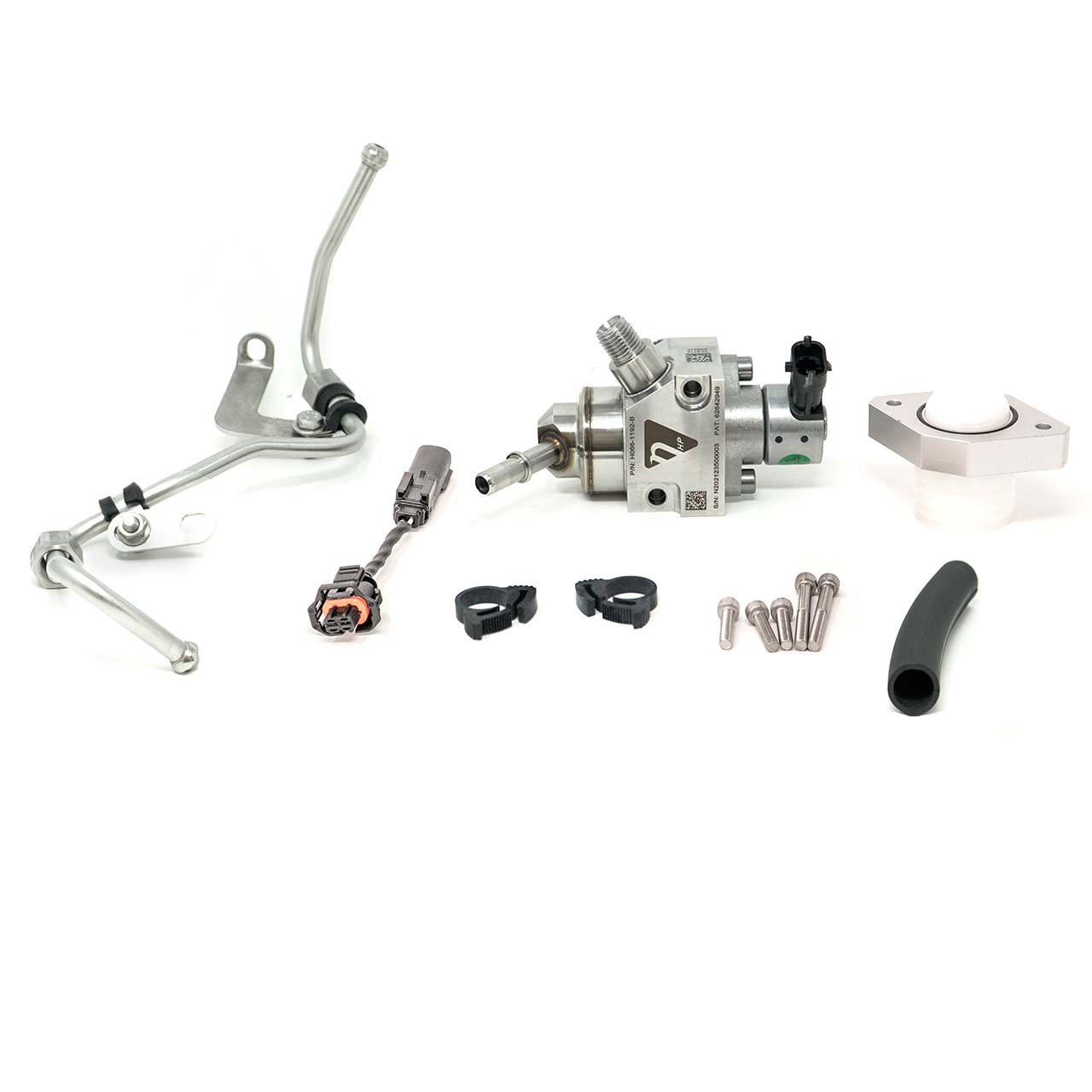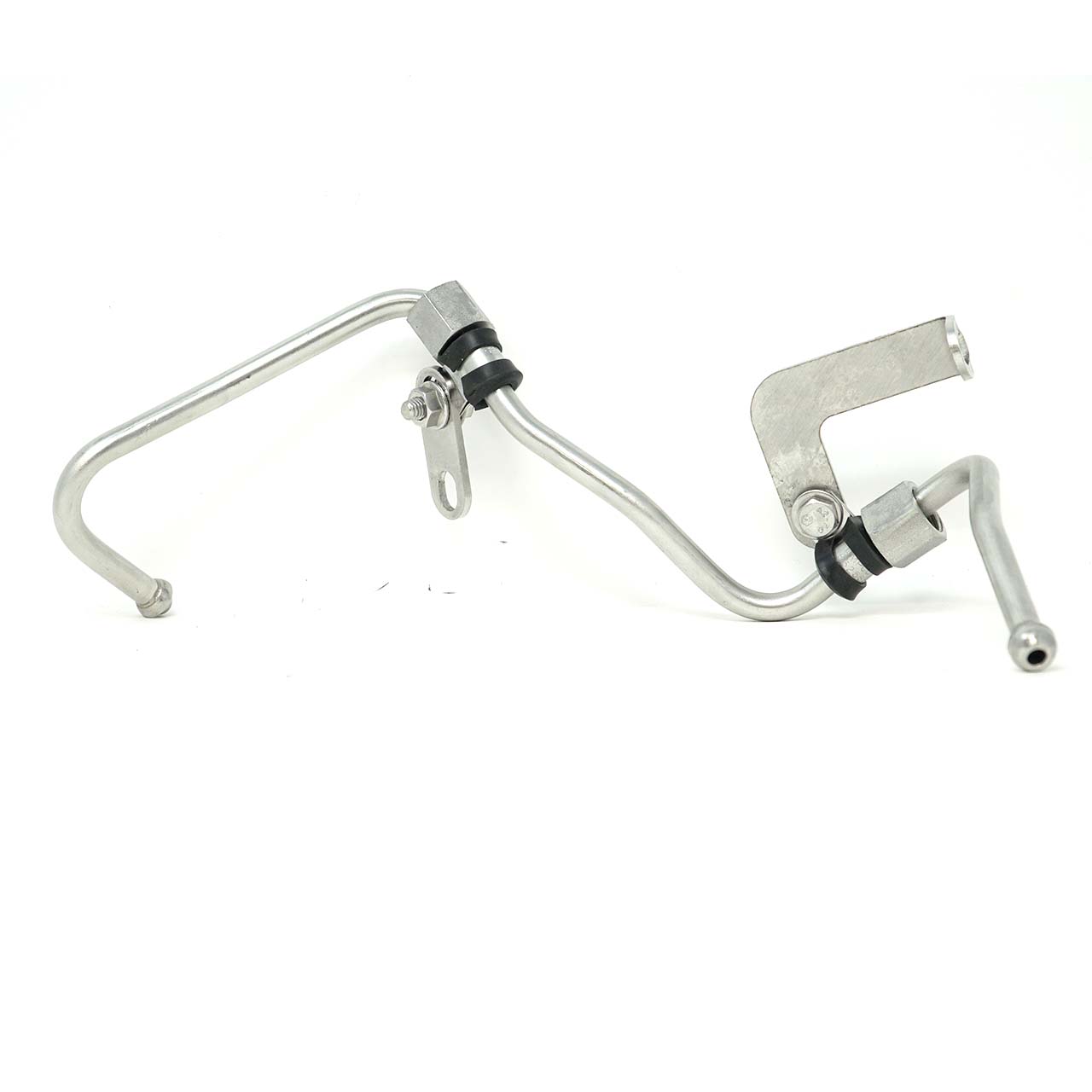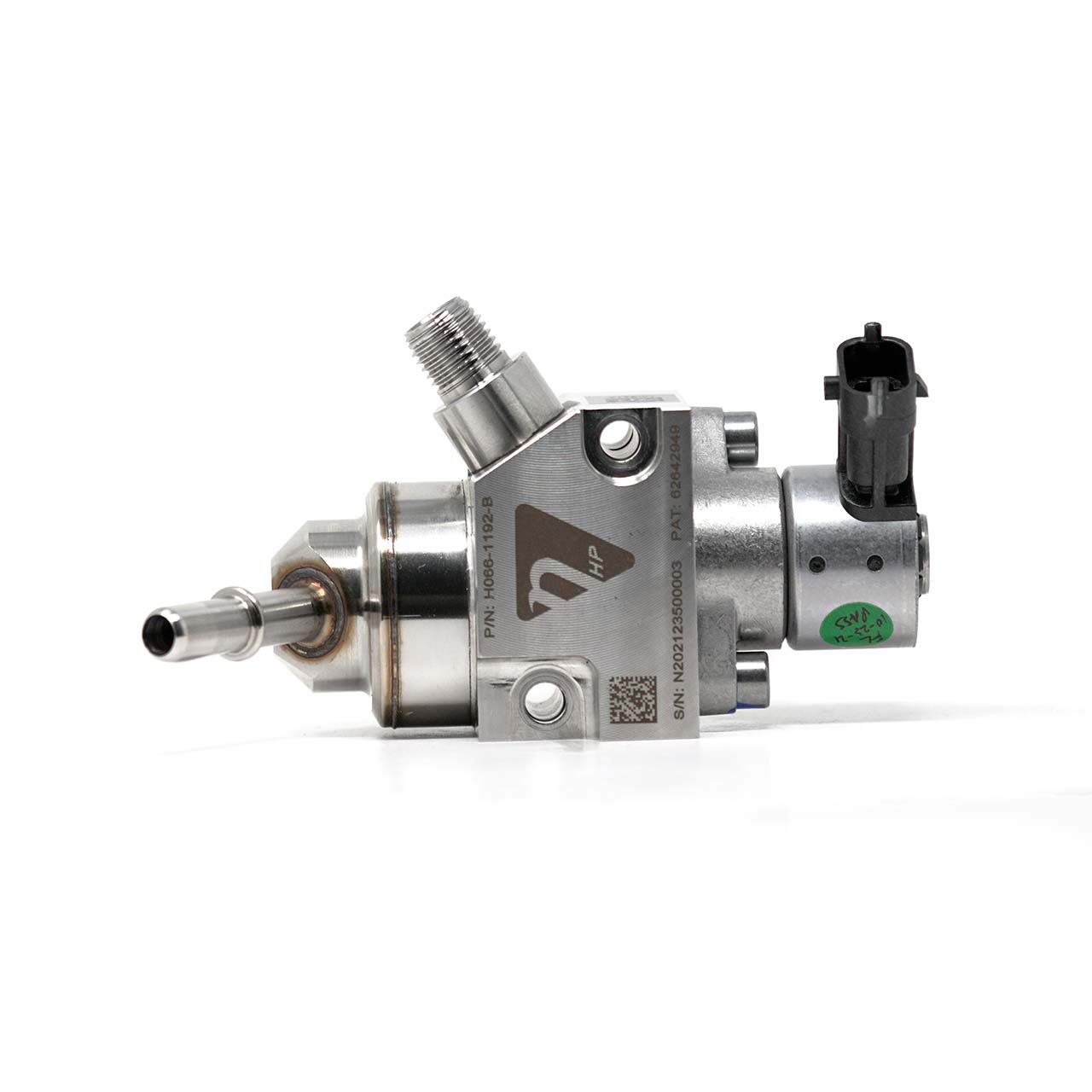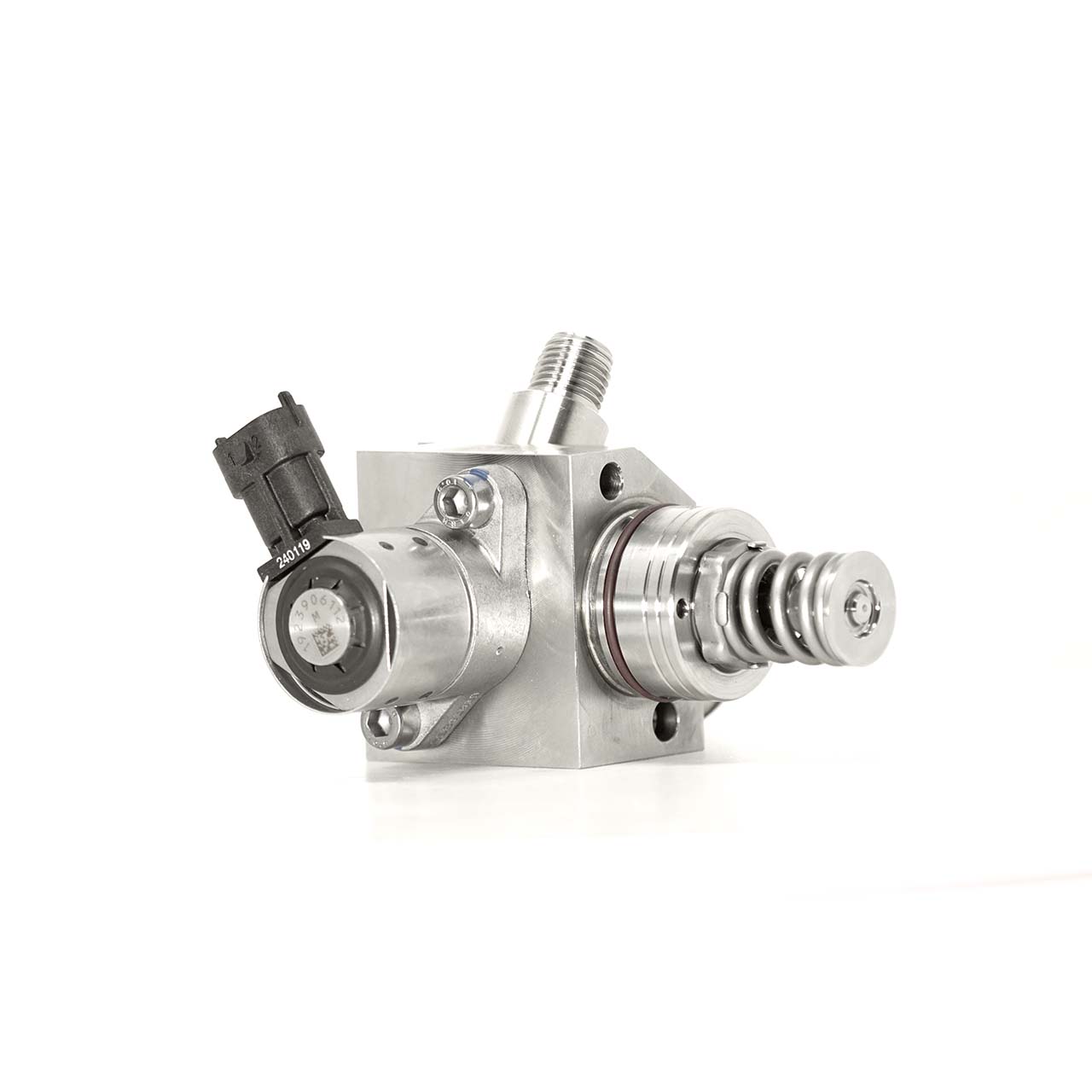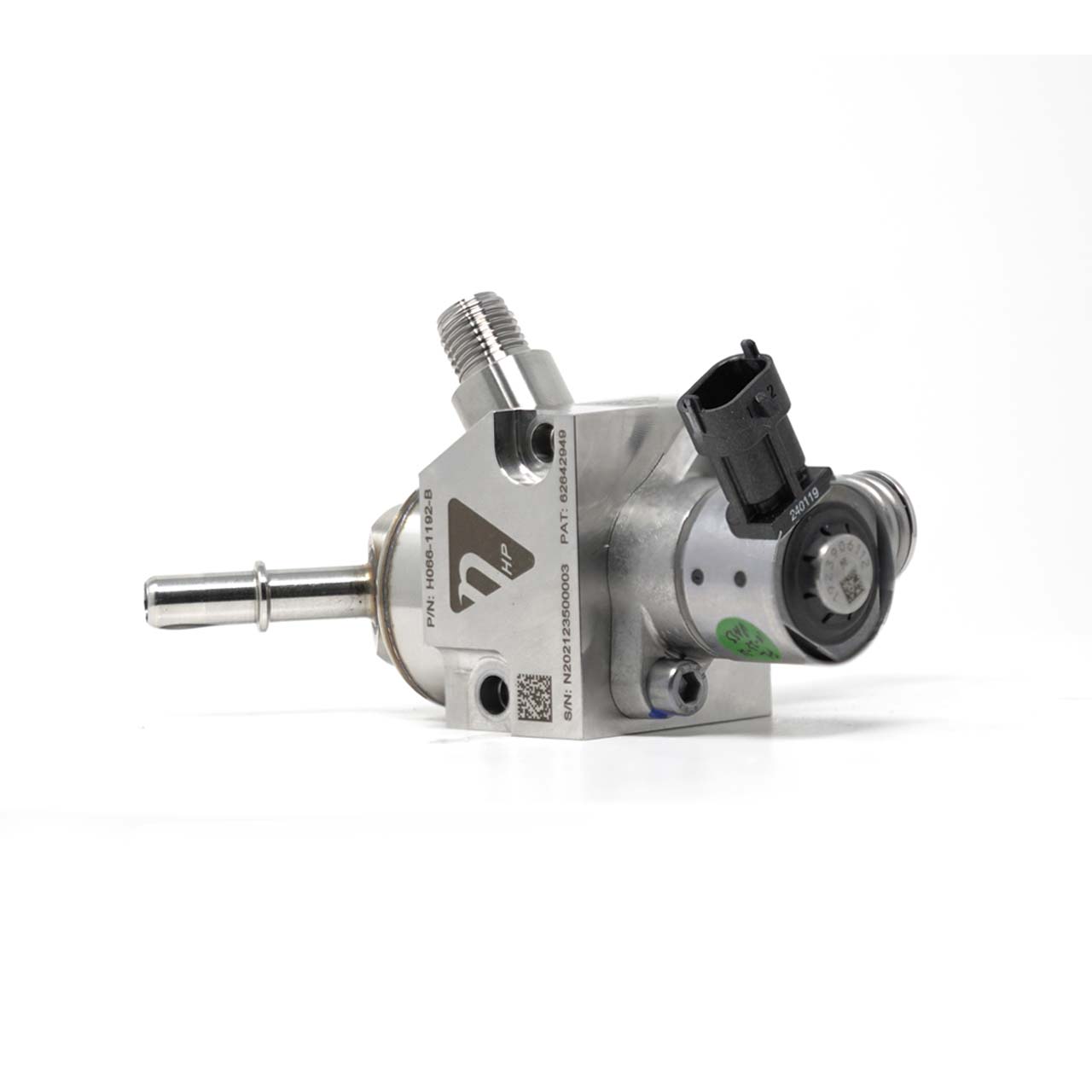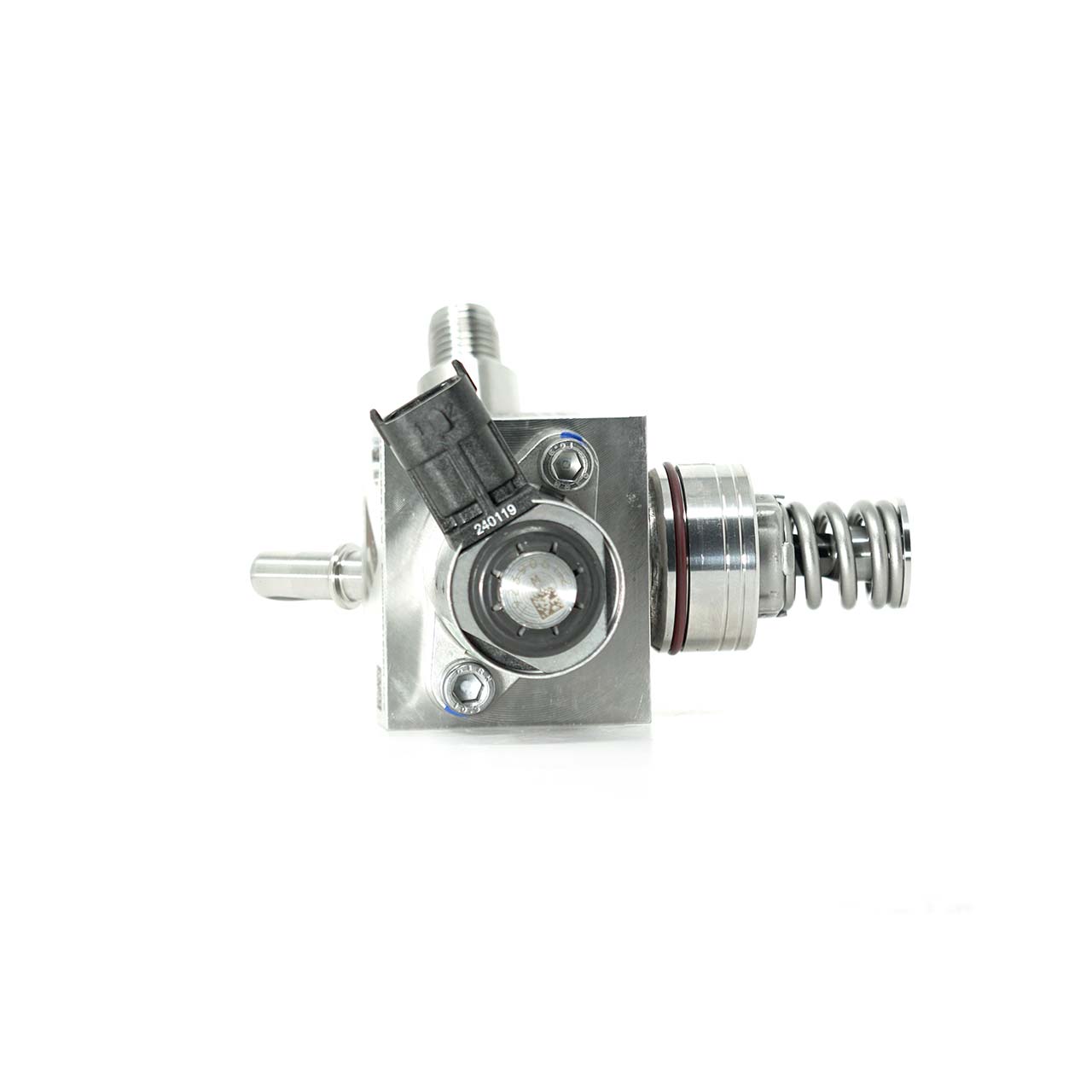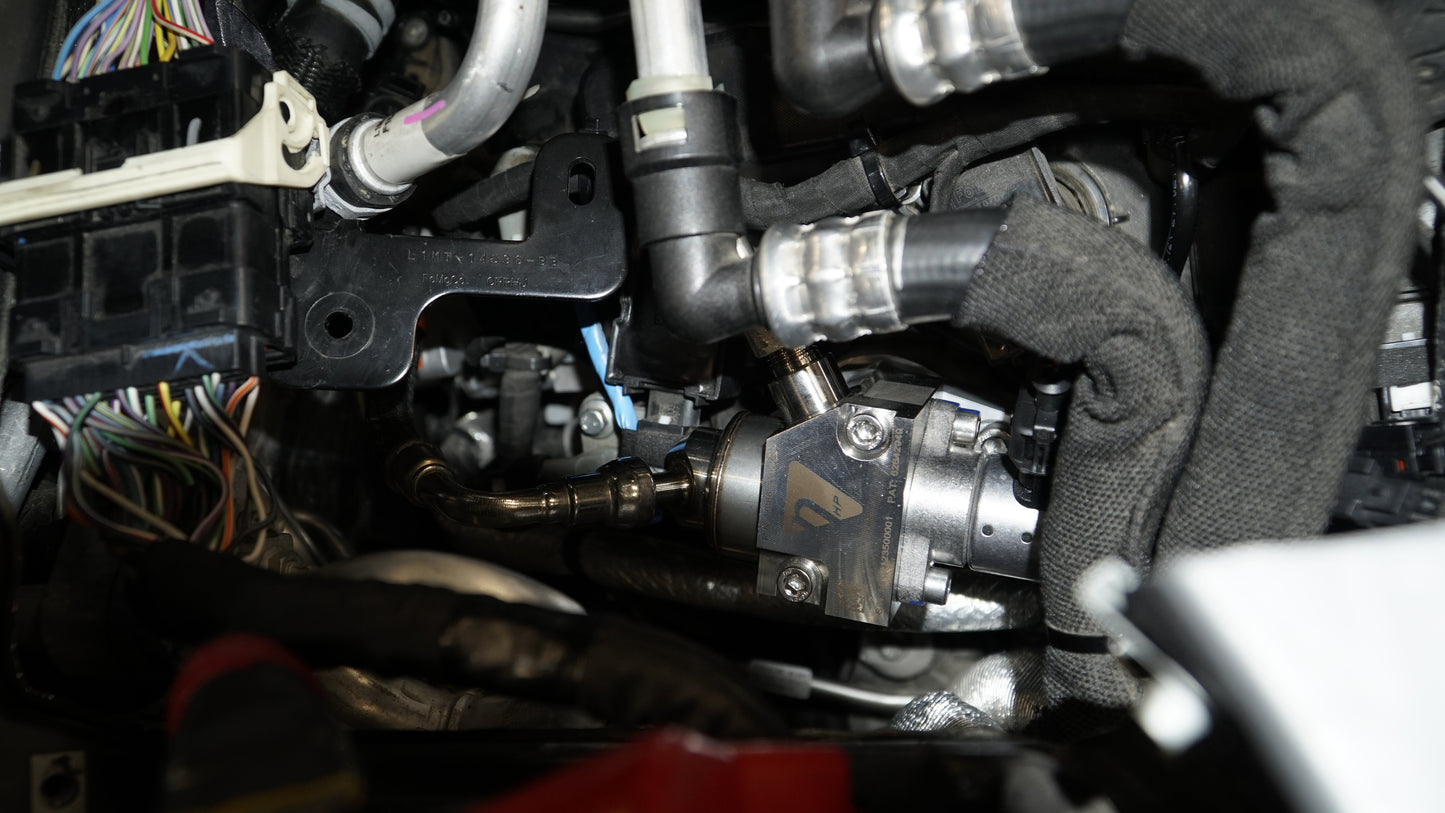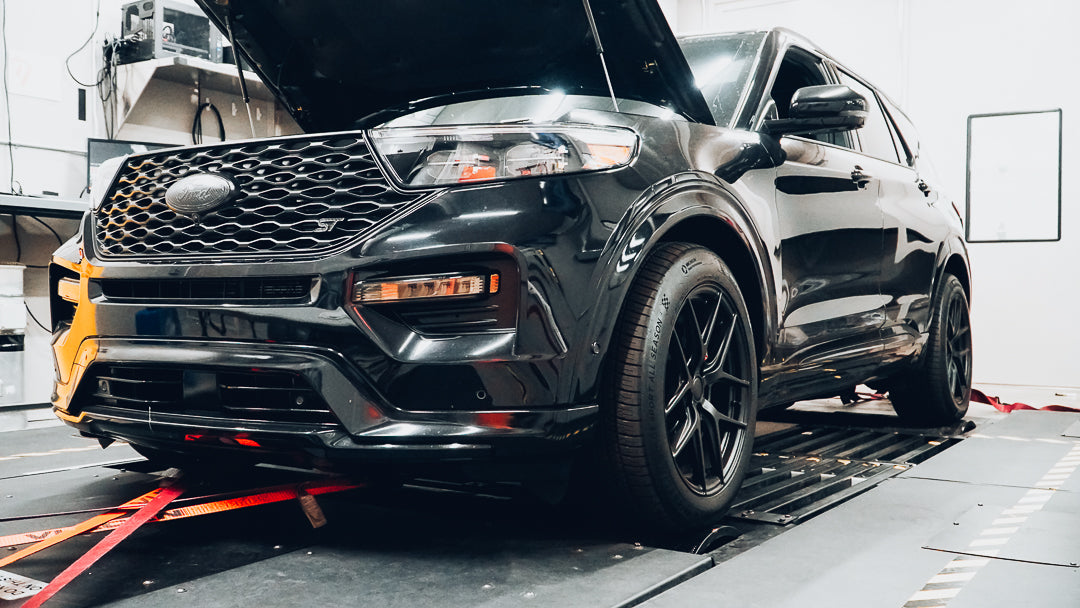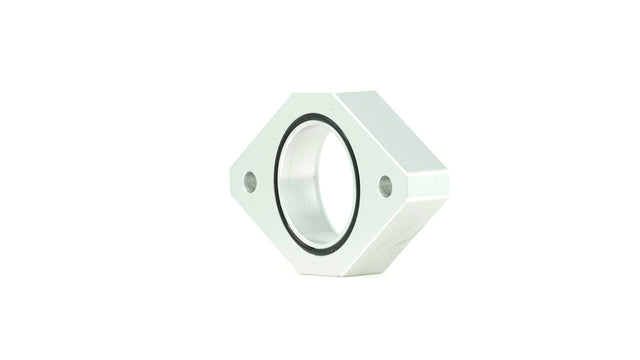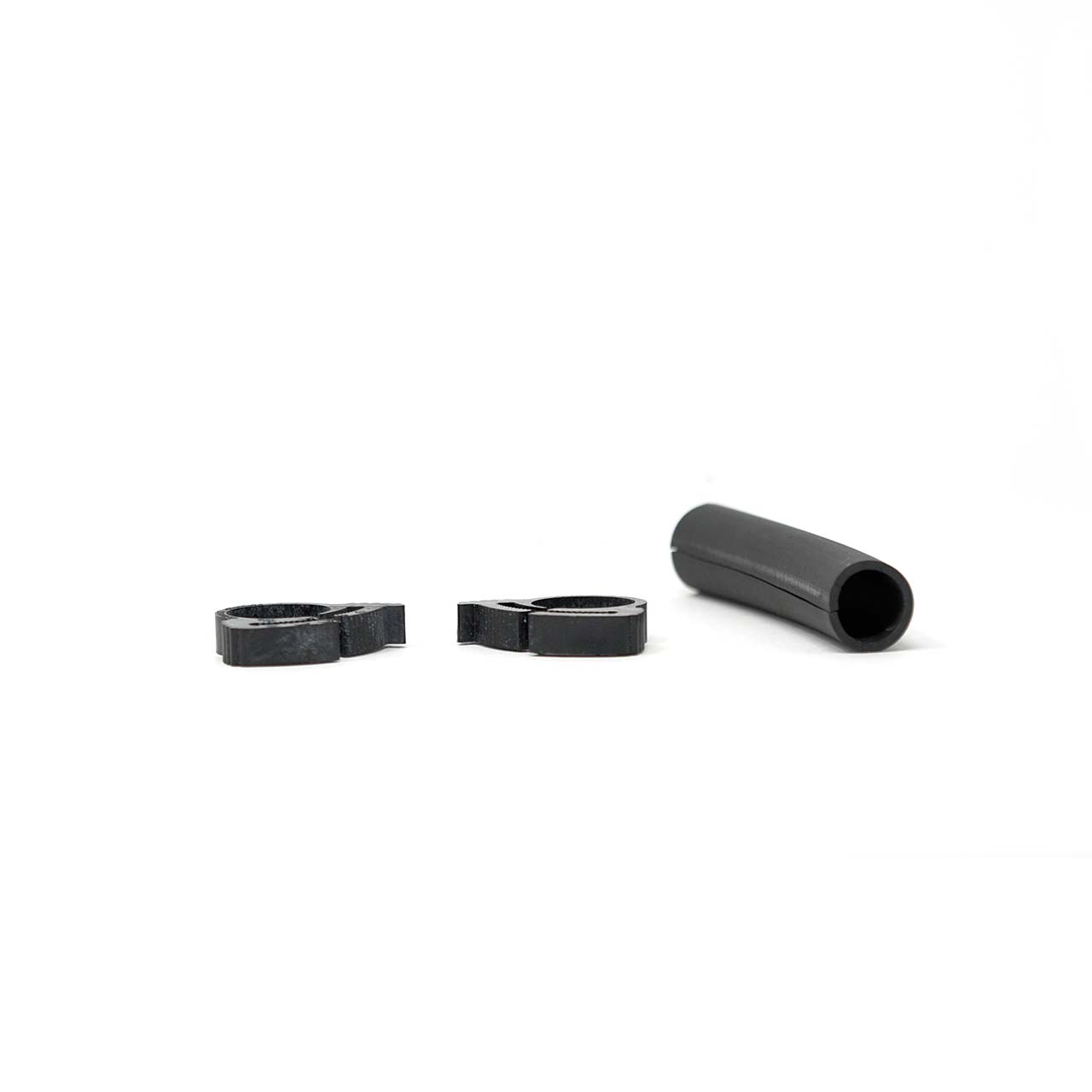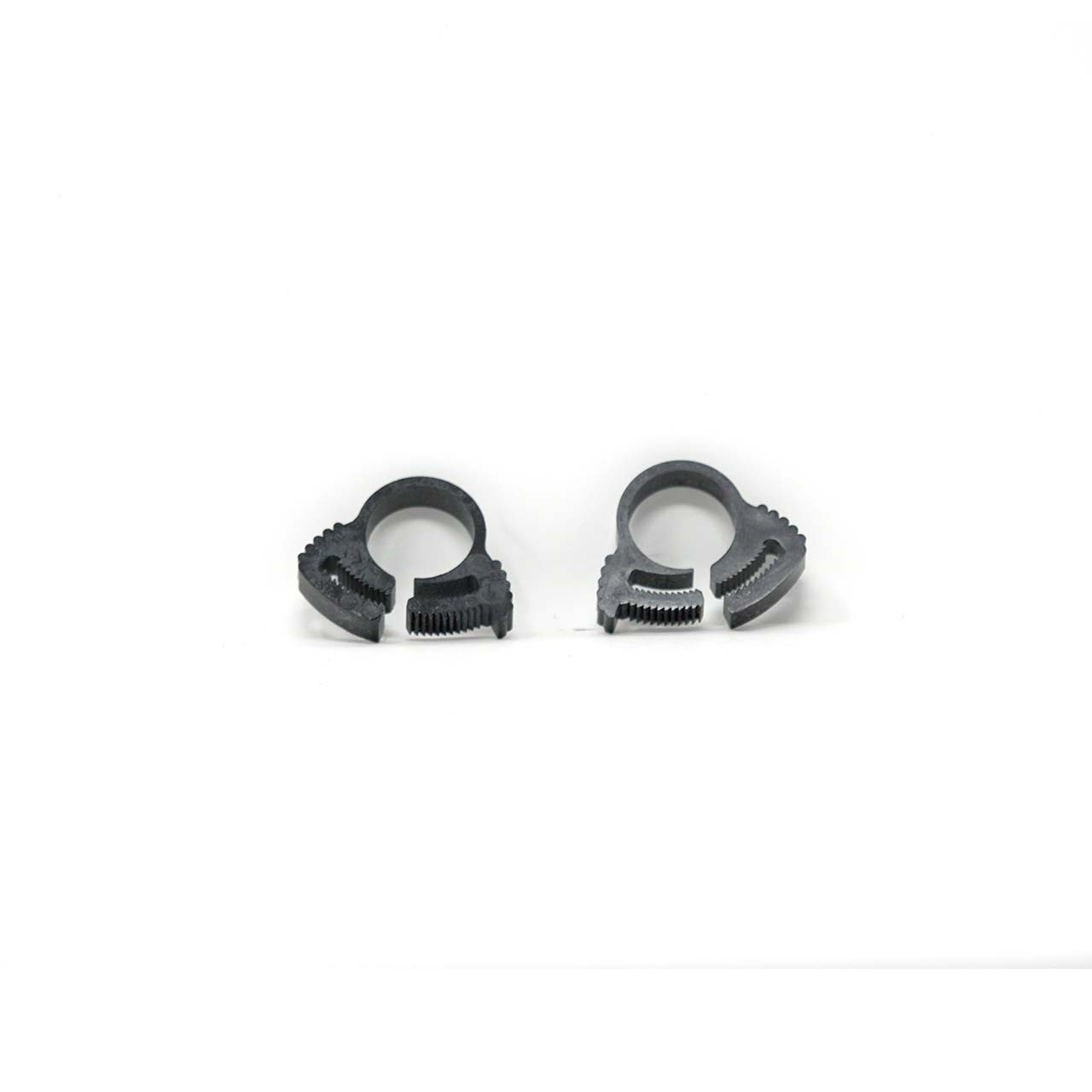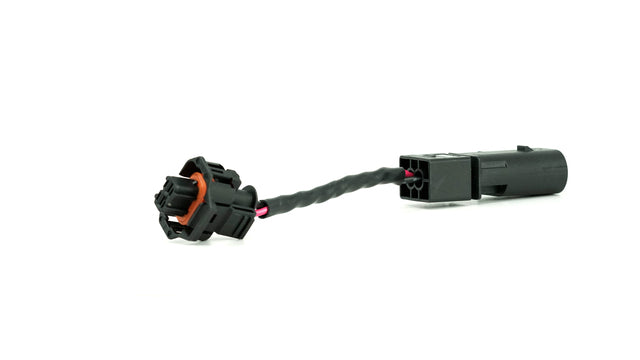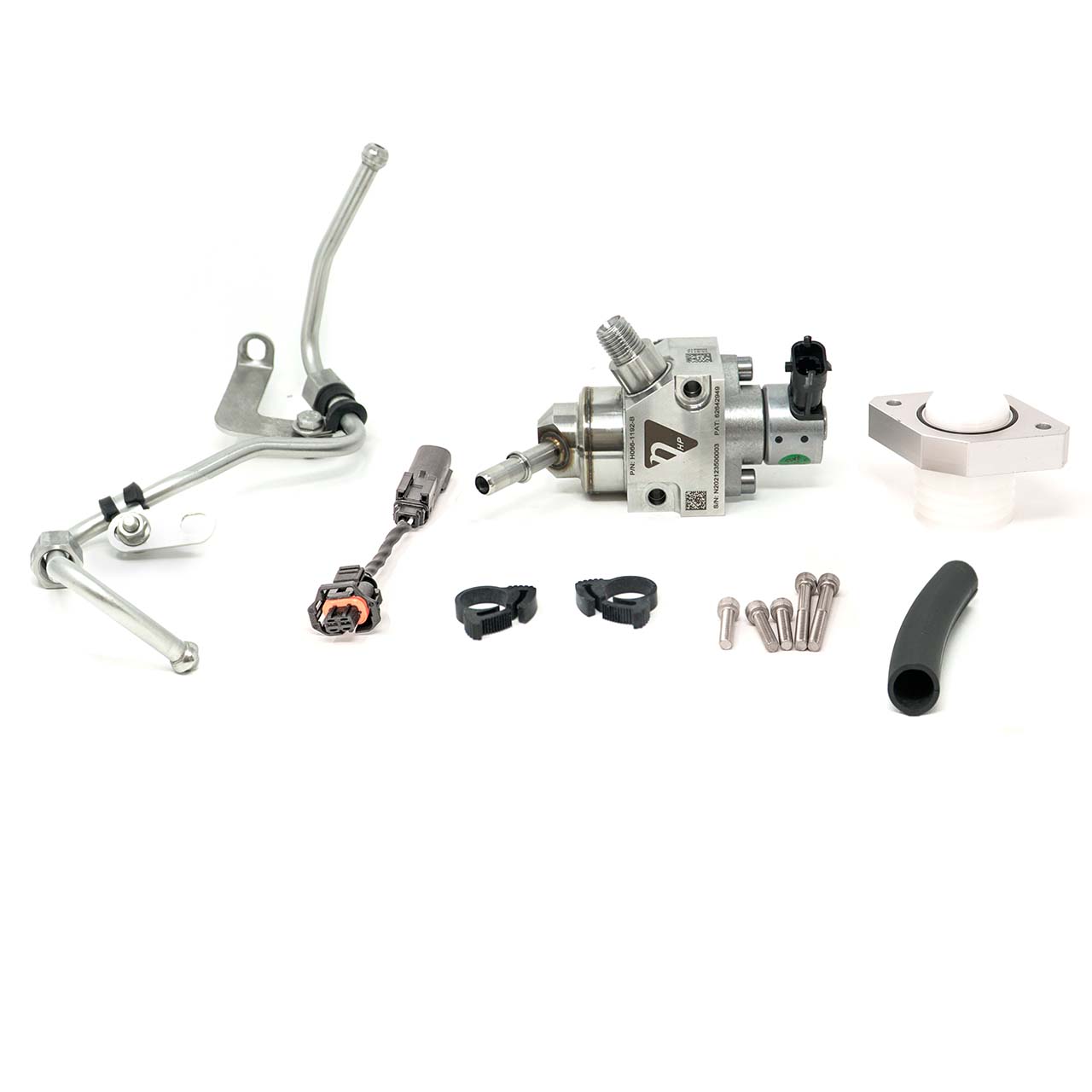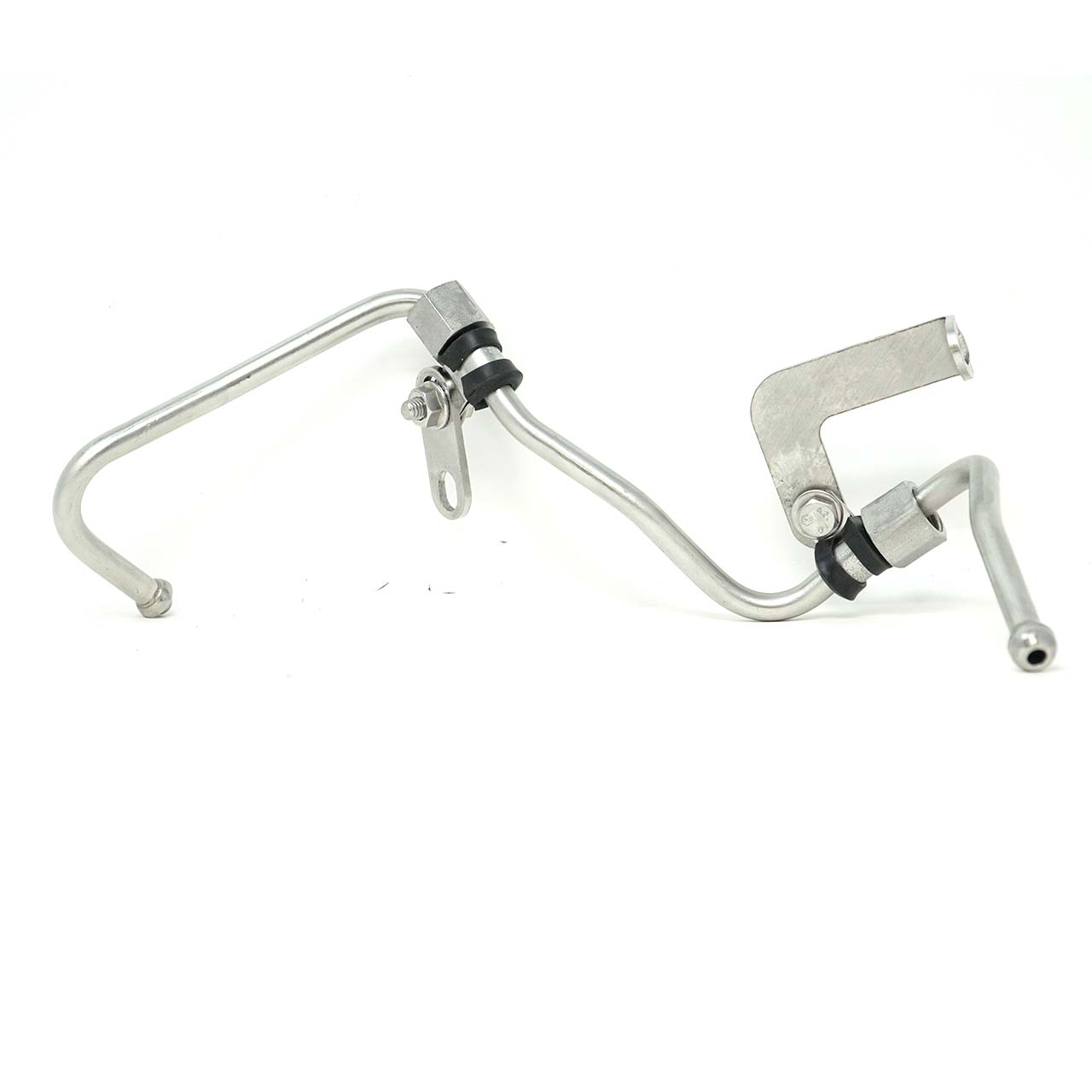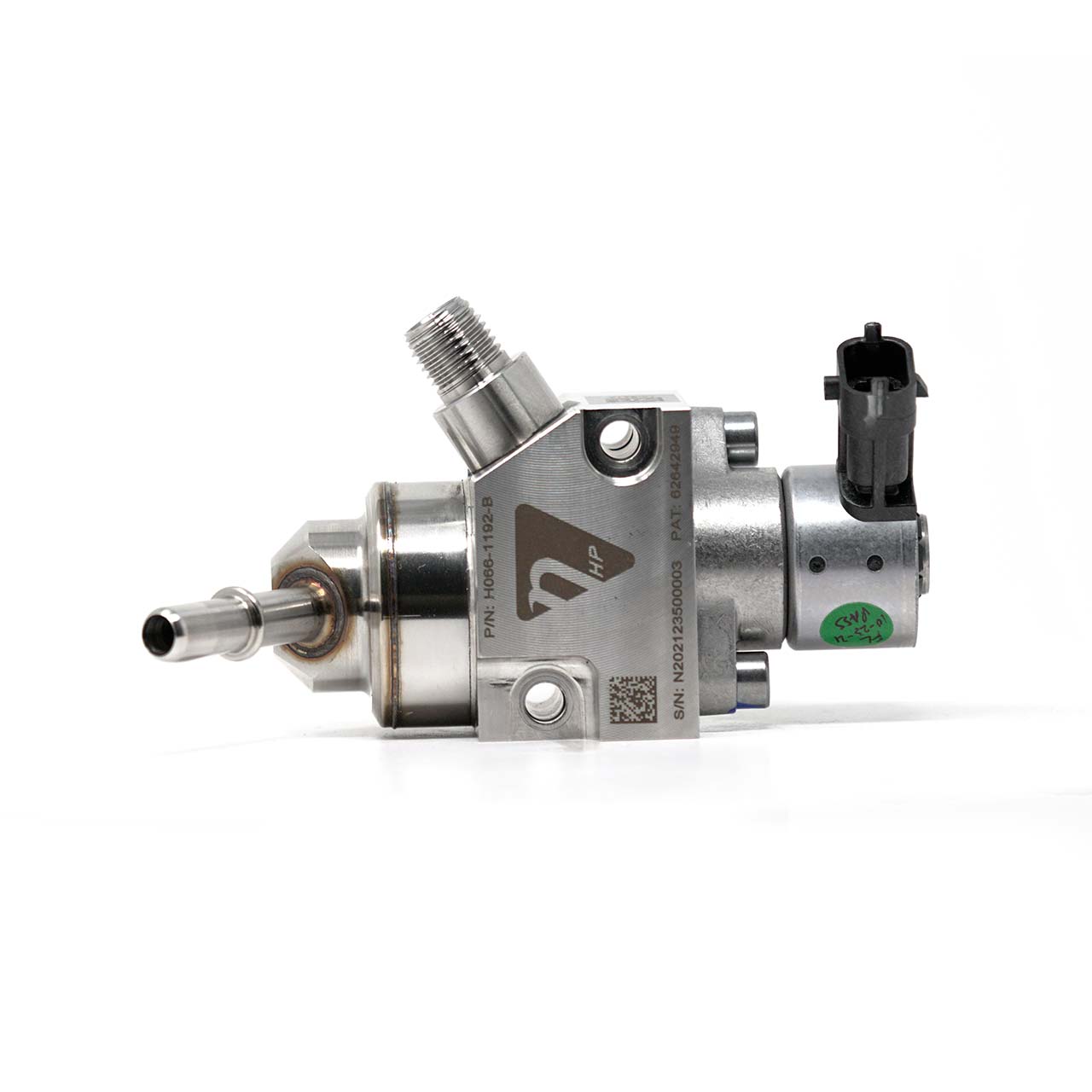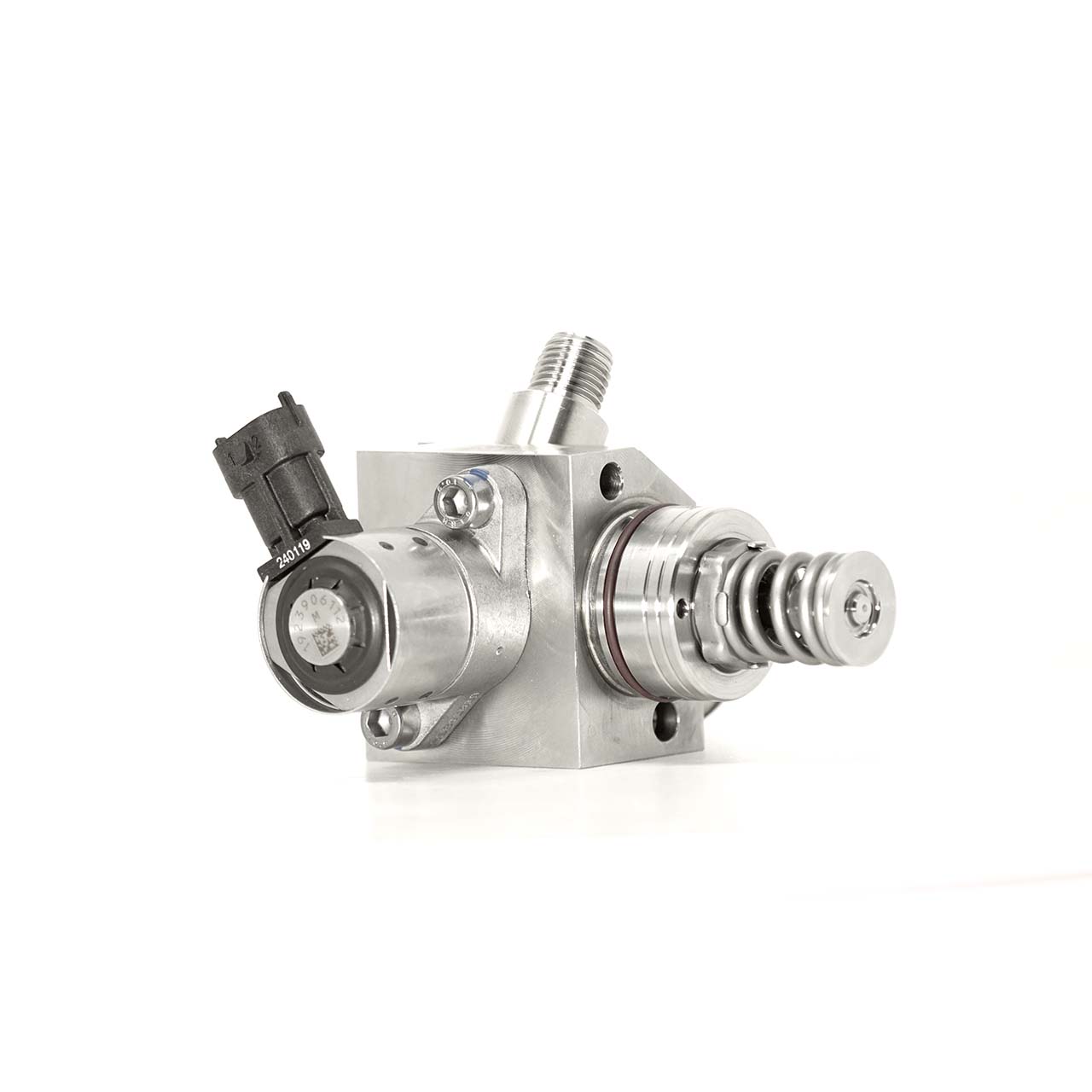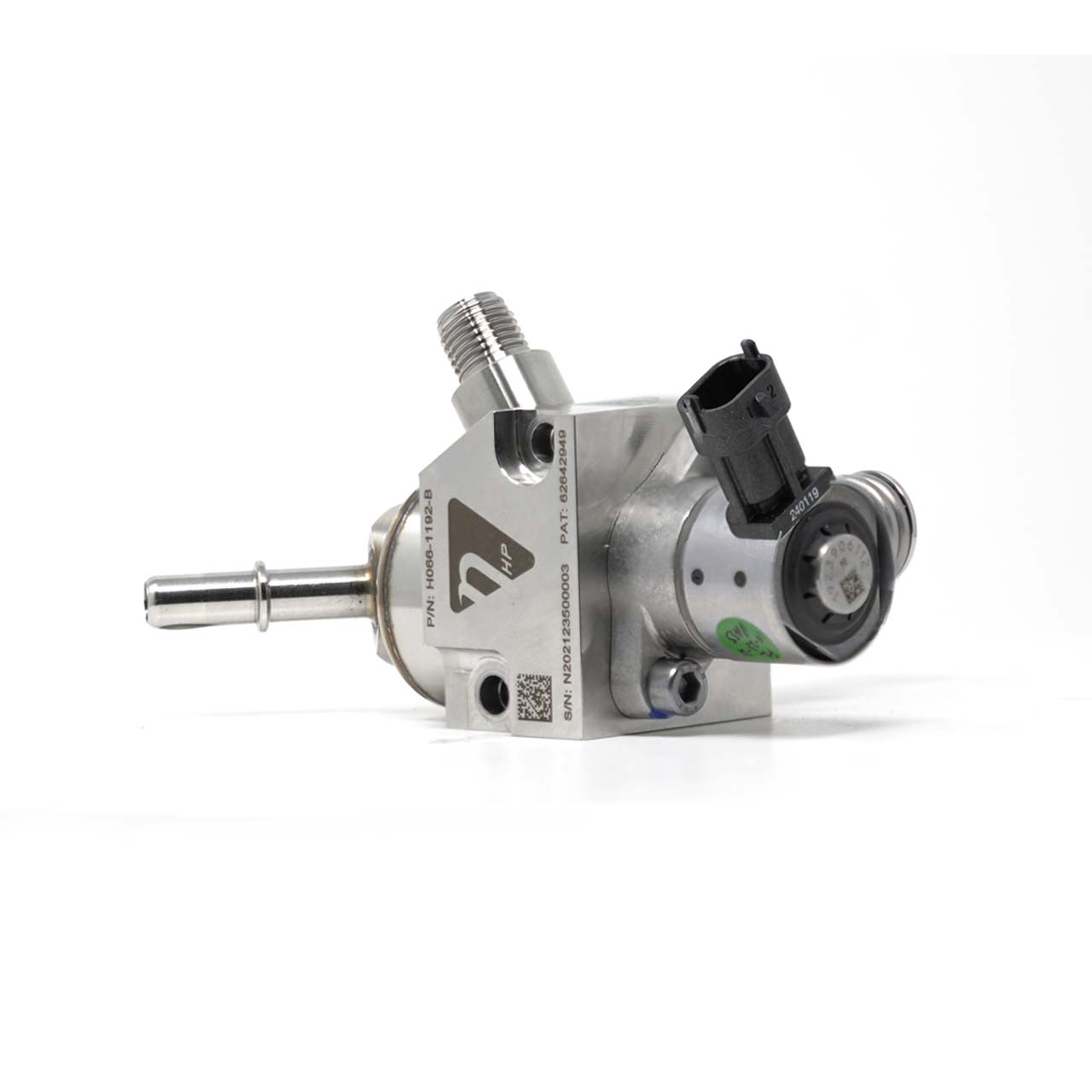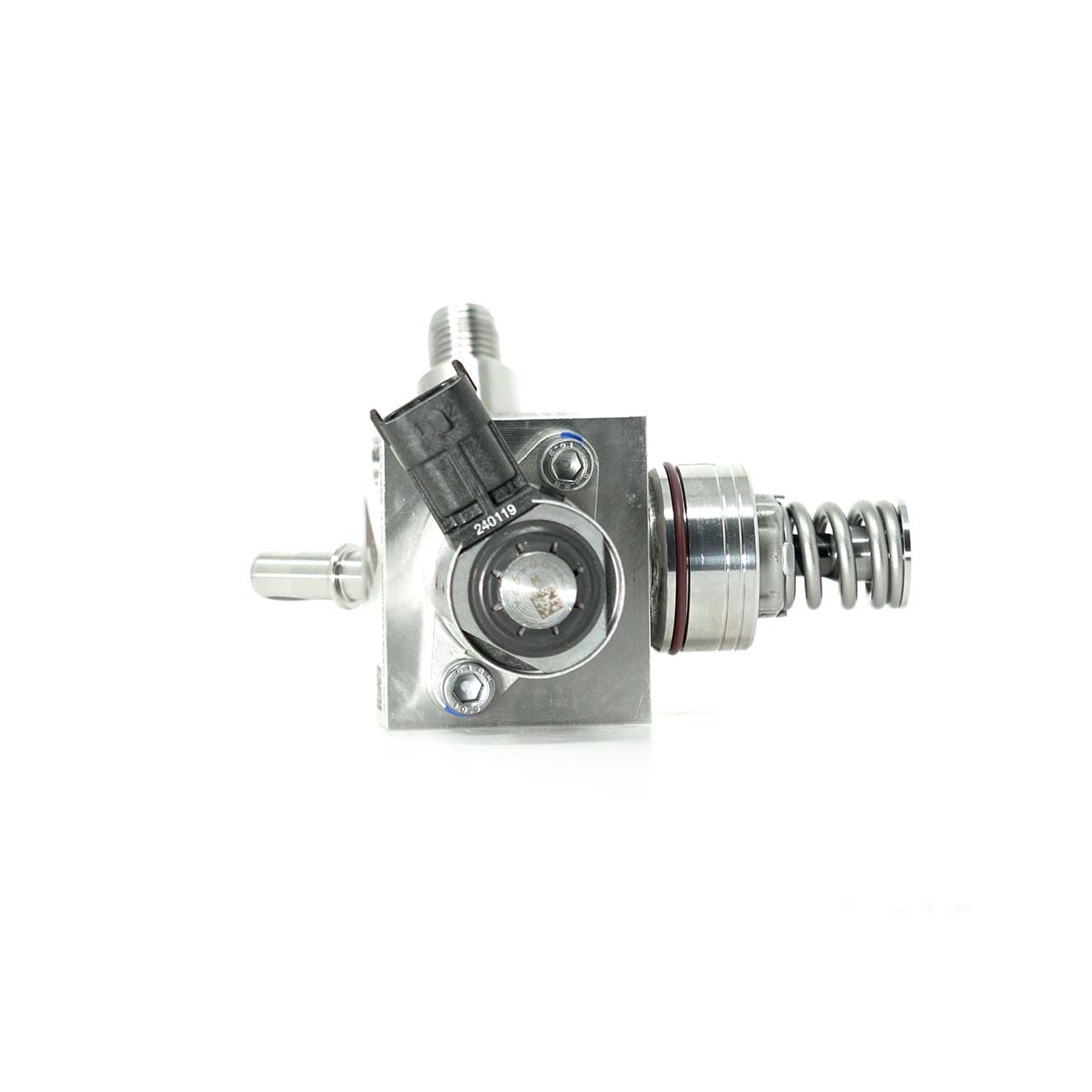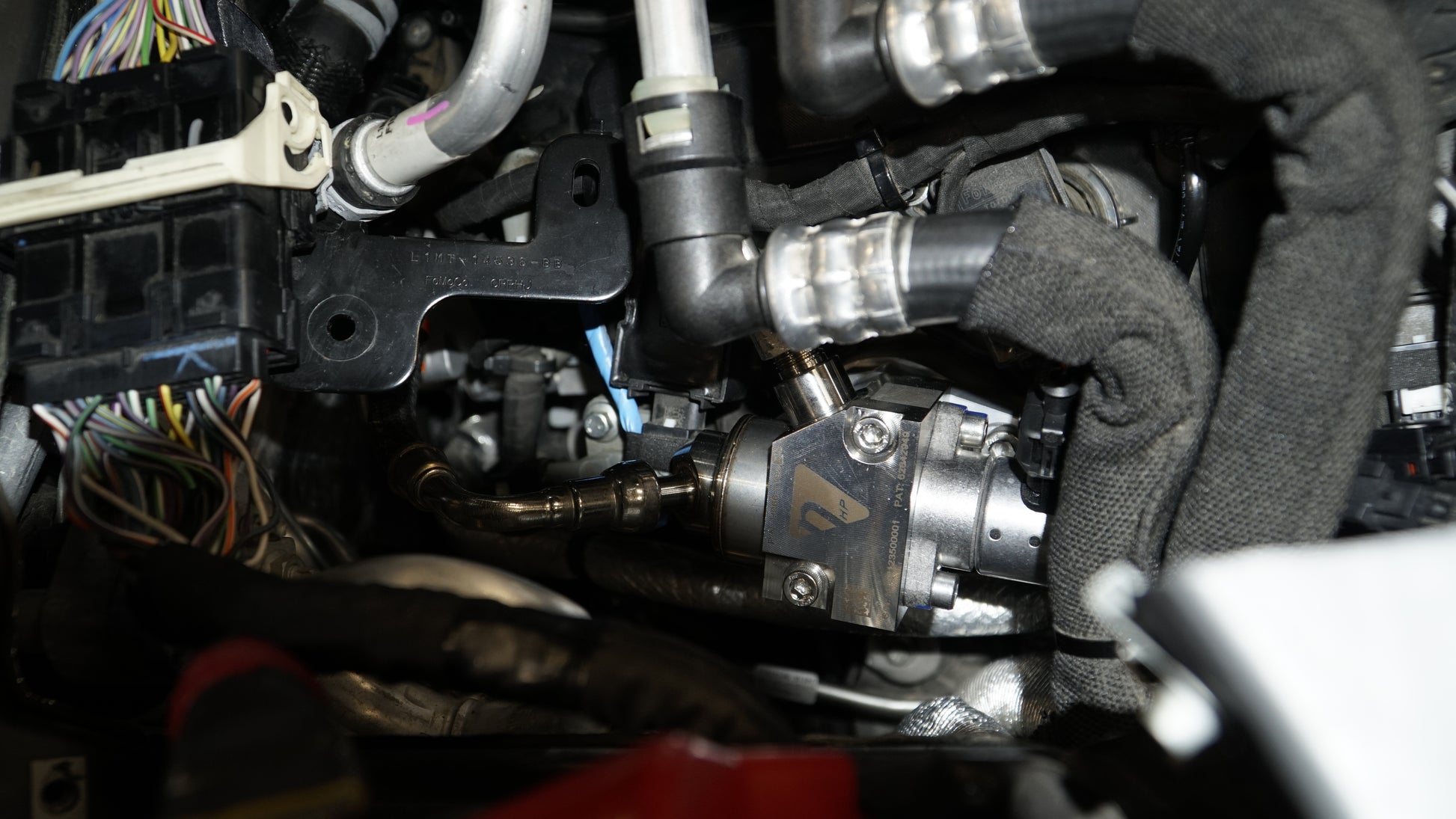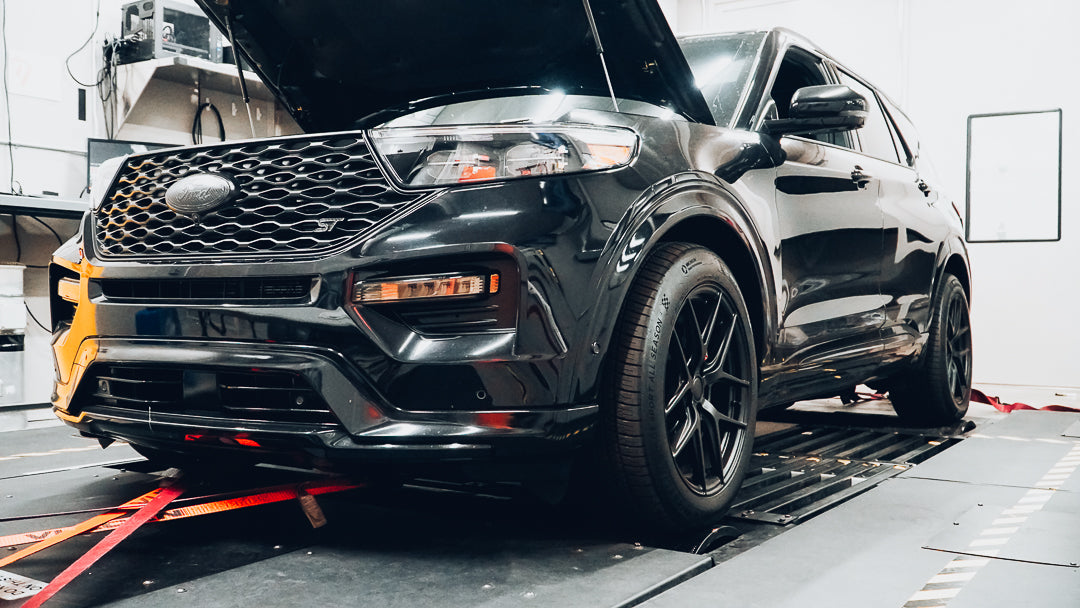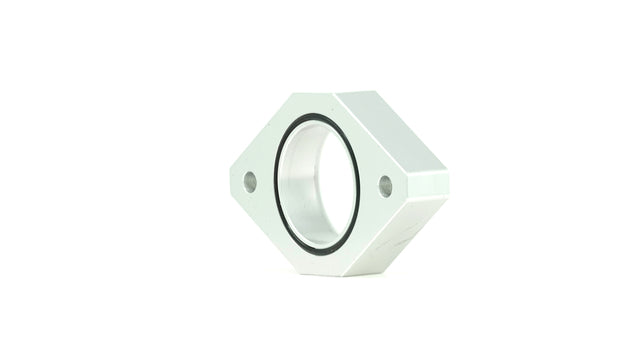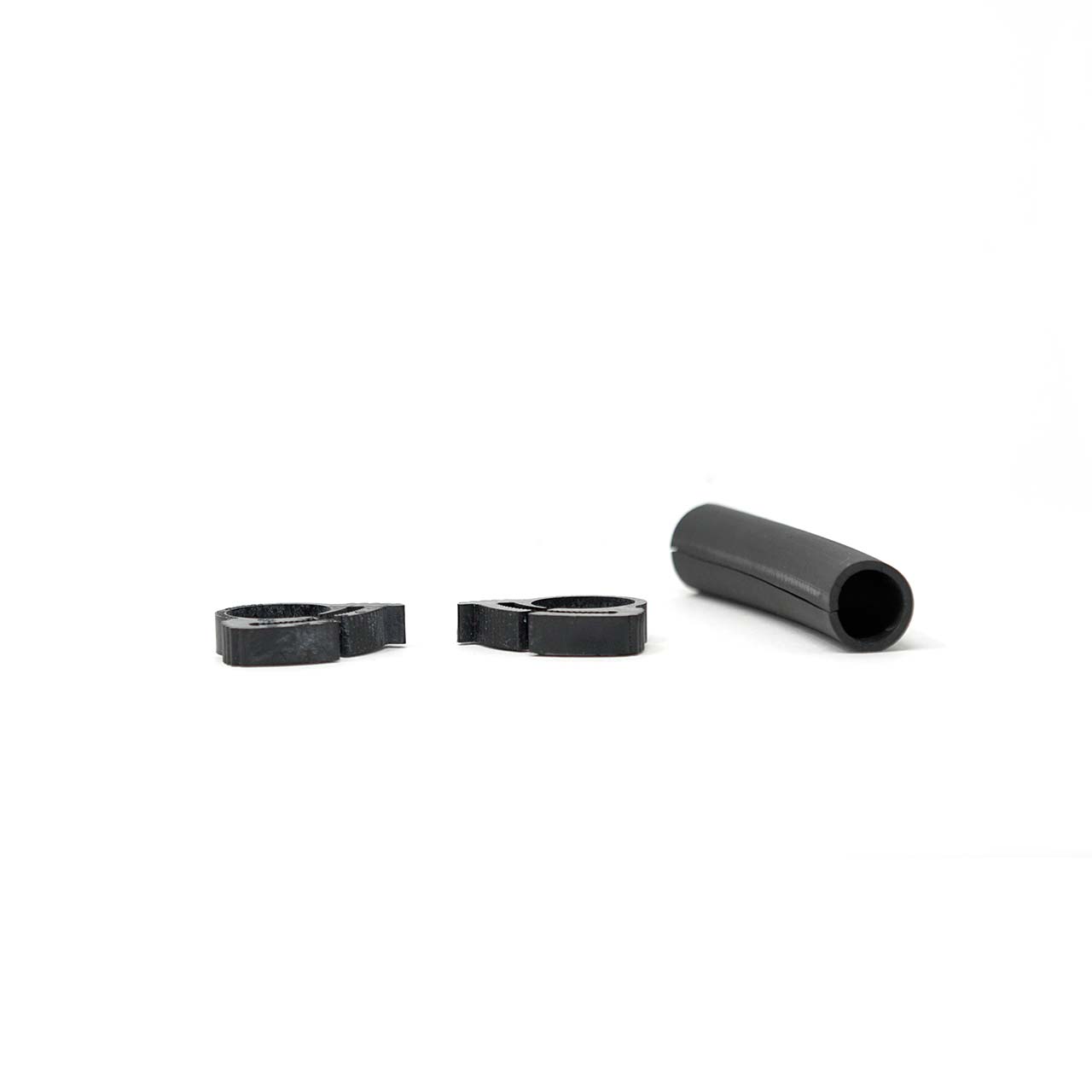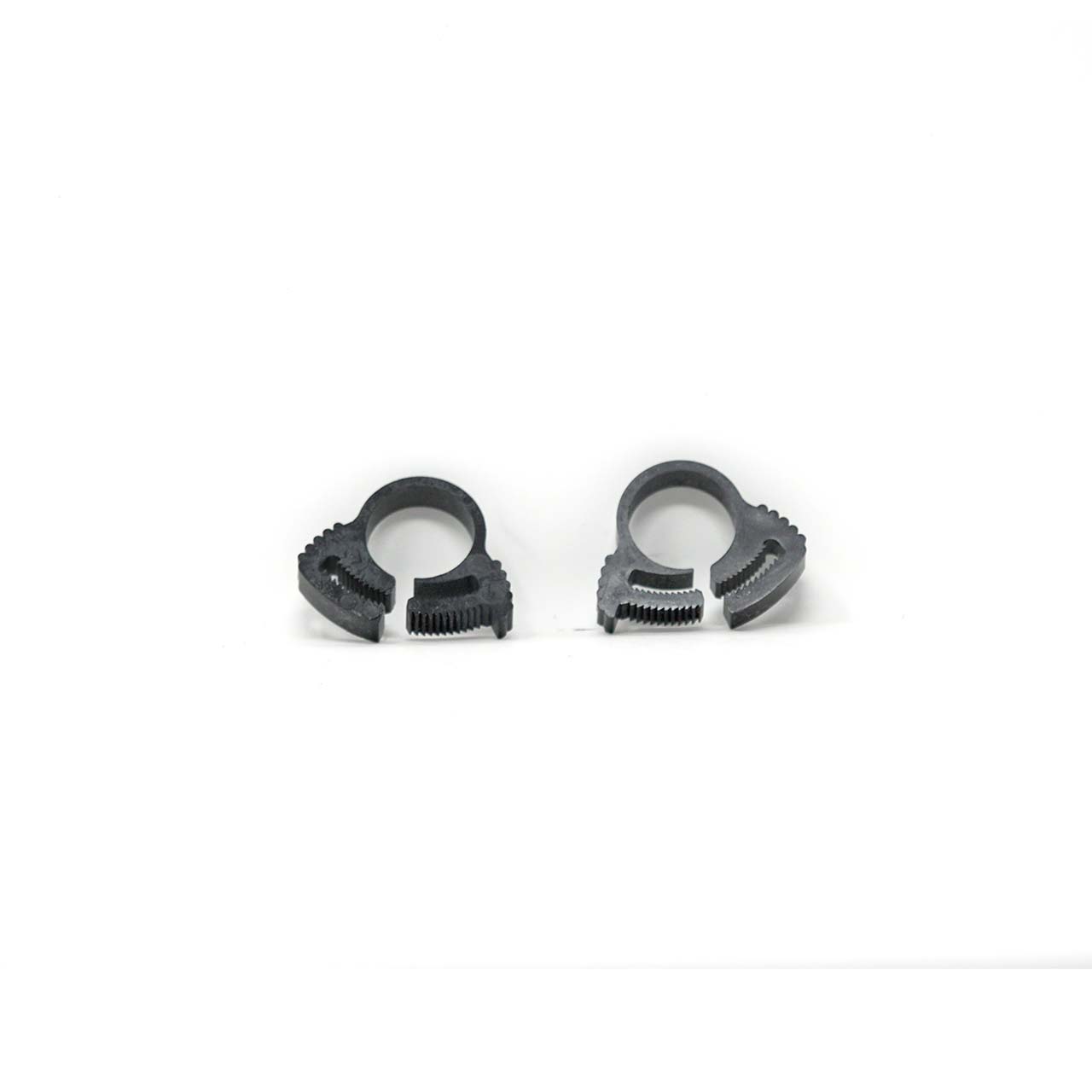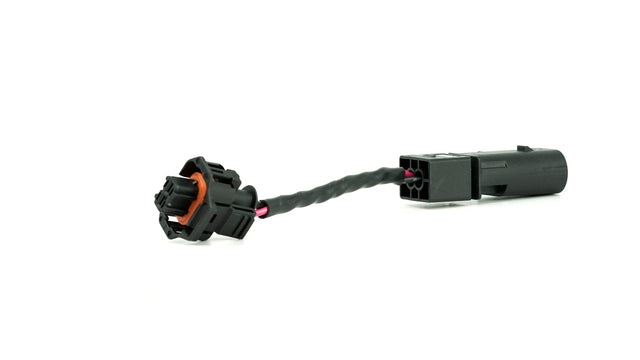Nostrum Performance
Nostrum - High Pressure Fuel Pump Kit - 2020+ Explorer ST
Nostrum - High Pressure Fuel Pump Kit - 2020+ Explorer ST
Couldn't load pickup availability
- Nostrum Fuel pump kit
- WHP Potential on Gasoline: 750 WHP*
- WHP Potential on E85: 700 WHP*
- Tune Requirement: Yes
- Recommended Tuning Suite: HP Tuners
- HPFP Flow Rate Increase Over Stock: 47%
- Max Operating Pressure: 248 bar / 24.8MPa / 3600psi
What sets the Nostrum 3.0L Ecoboost pump kit apart:
- 47% Flow rate increase over the stock HPFP
- Custom formed hard line for OEM-like fitment
- Fully stainless welded construction on the HPFP (zero chance of leakage)
- Installation guide provided
- Tuning Guides available (dealers and tuners)
- Limited Lifetime warranty
- OEM SAE quick connect fitting (low EVAP)
Nostrum is proud to introduce our HPFP Upgrade for the 3.0 Ecoboost found in the Explorer ST! The main benefit of our HPFP is the 47% increase in flow over the stock pump, meaning you can dial in more boost earlier in the rev range and allow for a significant increase in torque. The additional fuel provided by Nostrum’s hpfp will allow you to hit peak power even sooner. Being that our pumps are ethanol compatible, you also have the added benefit of being able to run e85 or blended ethanol fuel. Ethanol is wonderful on turbo cars, as it has a higher octane rating and is less prone to knock than 91 or 93 pump gas. Less knock, more boost, more power!
To take full advantage of your now upgraded hpfp, you would want to pair it with some bigger injectors! Our Stage 1 Injectors flow an additional 11% more fuel than the stock injectors. This is where we bring those peak gains back to the table. We set the Explorer ST HP record on our dyno using our HPFP and Stage 1 Injectors, among other mods, initially making 657 AWHP, we recently reset the record making 707 AWHP.
We offer both of these products in a bundled Stage 1 kit to give you a complete fueling package, which offers a savings over buying and installing the kits separately.
Nostrum backs every part we sell with a limited lifetime warranty. These products come complete with everything you need inside the box, including detailed installation instructions. Tuning guides are also available for your dealer or tuner. We have customer service and calibrators on staff to provide you with any support that you may need, from installation to tuning.
What comes in the box:
- H086-1182-1 High Pressure Fuel Pump Kit - fully welded stainless steel construction
- CFD optimized damper housing
- Stainless-steel High-Pressure Tubes with OEM fittings
- Ethanol compatible
- Electrical Connector Adapter harness
- Installation Guide
- 2020+ Explorer (ST and Platinum trims)
- 2020+ Lincoln Aviator
Dyno graph sponsorship results:
Corey’s 2022 Explorer ST (FBO, NHP Stage 2 Fuel Bundle, Hybrid Turbos) 614whp 582wtq on E60
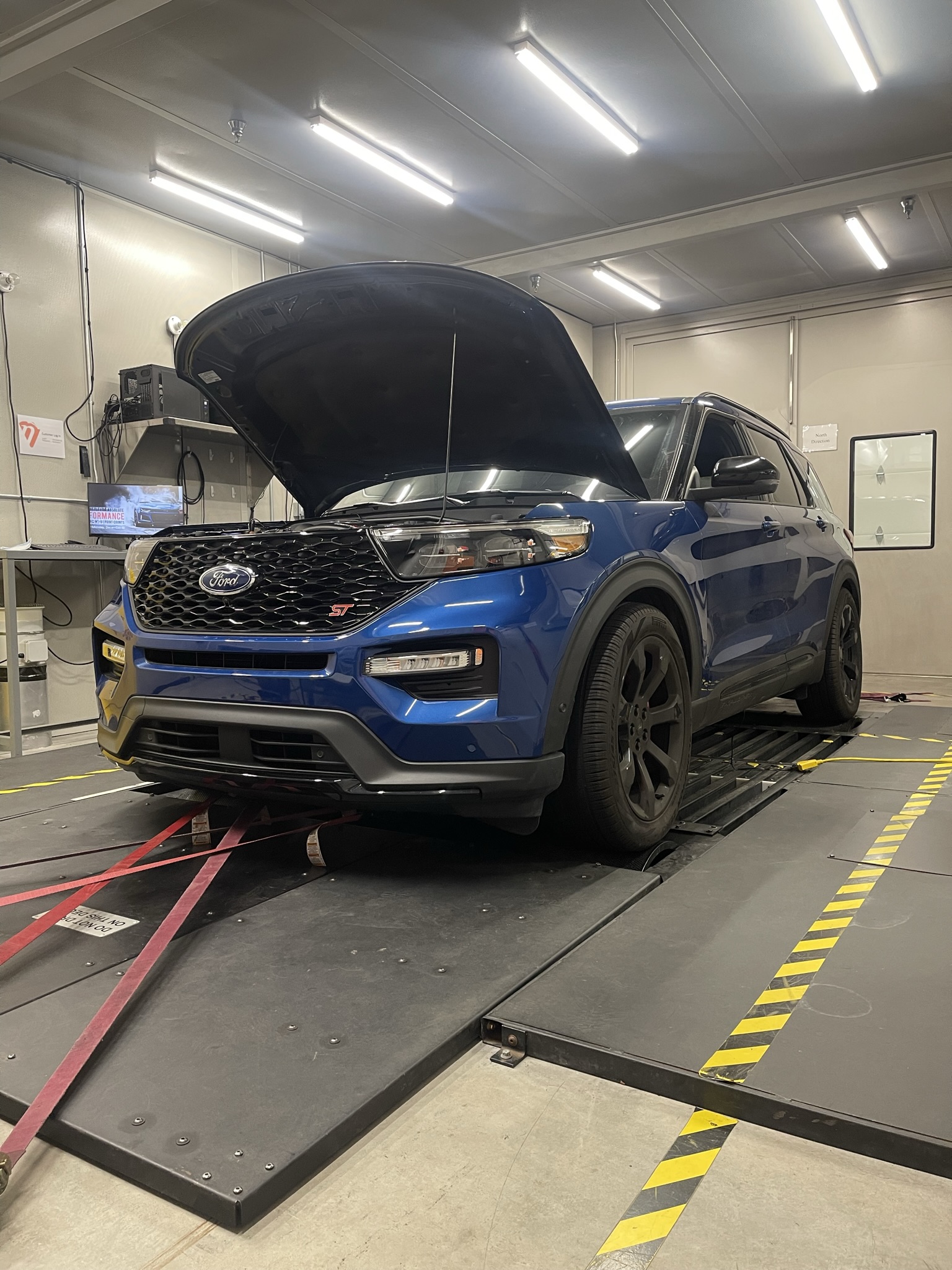

Mat’s 2020 Explorer ST (FBO, NHP HPFP, Stock Turbos) 502whp 540wtq on pump E85
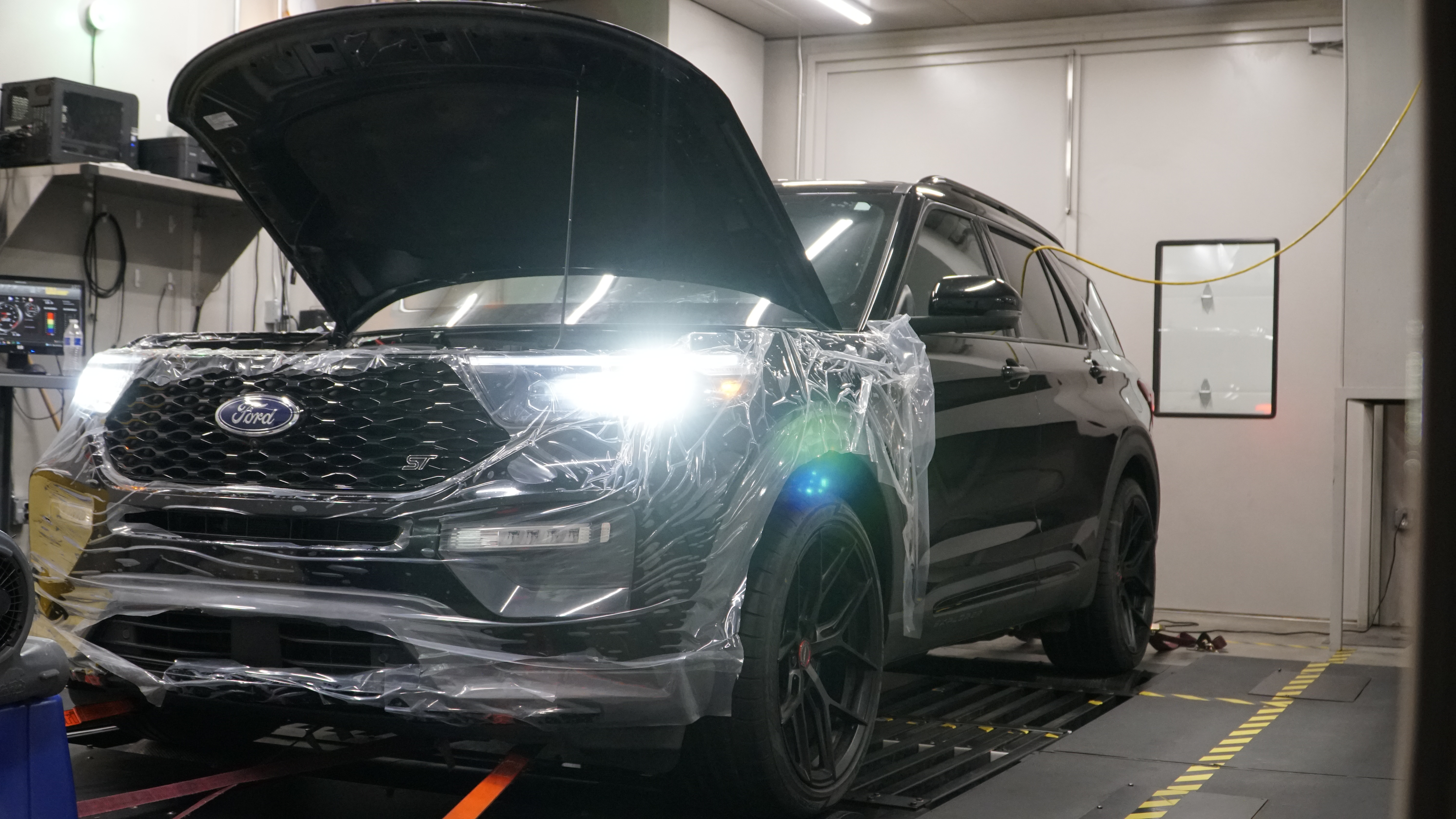
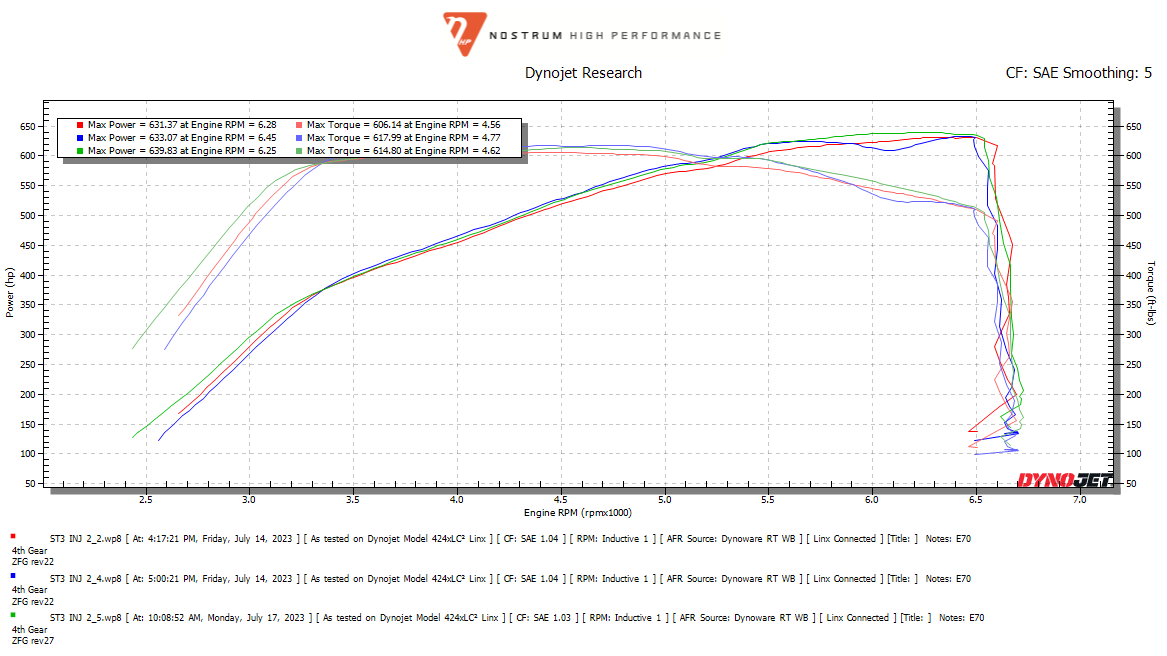
Mat and Kathy's Explorer ST made 639 WHP on our Dyno on Pump E85! They went on to run a 10.67 in the quarter mile at the 2023 Shootout by Buschur Racing! See the run on Instagram here!
*Horsepower and Torque numbers are approximate and can vary significantly depending on numerous factors including what supporting upgrades are done to the vehicle, ambient temperature, elevation, road surface, tire selection & condition, fuel octane and quality, vehicle weight, and more. The advertised numbers herein are based on optimal conditions and utilizing proper supporting modifications. Your results may vary.
Frequently ask questions:
Q: Why do your numbers say I will make less horsepower on E85 than 93 octane?
A: Great question! The numbers we list in the product descriptions are similar to the numbers a turbo charger lists for air flow. The numbers are the "fuel system capacity to generate power" regardless of the other engine system limitations (air handling, mechanical limitations, knock propensity). Essentially the numbers are calculated assuming "sufficiently large air flow", "sufficiently capable mechanical assemblies" and disregarding knock limits. The equation uses actual observed engine volumetric efficiency (when available from sponsorship vehicles) and fuel capacity (including target pressures) to calculate power. Gasoline has more energy per mass volume than E85. So the higher fuel flow capacity will mathematically generate higher power potential for a gasoline than a high ethanol content fuel. The other variables (air flow, spark, rotating assembly strength, charge cooling, mechanical assembly strength) are highly variable from build to build. This is why we state horsepower capacity for the fuel system – representing the potential of the fuel system if you have all the other aspects of your build addressed!
Q: Why can't I run straight ethanol with your pump? (FAQ Posted 6/9/23)
A: This is incorrect! We highly recommend running E85 from the pump on our products! Intermediate ethanol blends, like E30 to E50, are problematic (with any fuel system, stock and aftermarket). What happens is that Ethanol is a polar liquid, and all petroleum distillates are nonpolar; this means most things that can dissolve in Gasoline, are not soluble on Alcohol, and vice versa. Fuel manufacturers know this and choose their additive packages accordingly. Problems arise when you take E85 and then blend it down to ~E30 - E50. At these concentrations some of the gasoline additives will come out of solution, and they form a slimy, sticky residue that clogs everything up. It seems to be regional and seasonal in nature, which makes sense when you consider that E85 blends vary with the seasons. Running straight gasoline through the fuel system seems to fix it. If you choose to run intermediate blends then we do recommend that you run straight 93 gasoline from time to time to as a fuel system maintenance practice. That being said, we absolutely highly recommend pulling up to the pump and going full Pump E85 (P-E85)!!!!
Share
